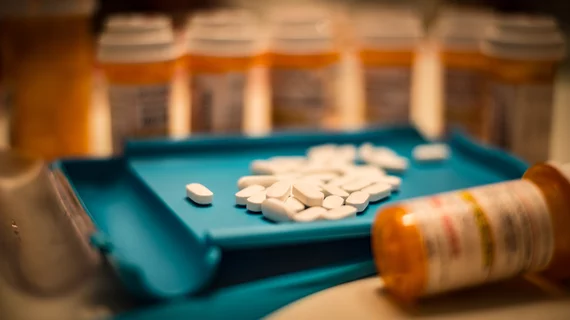Specialty pharmacies offer more affordable drug prices than hospitals
Procuring drugs through a specialty pharmacy may mean lower costs for patients, according to a new study from America’s Health Insurance Plans (AHIP).
The goal of the study was to assess a potentially overlooked chance to decrease healthcare prices while also ensuring patients safely receive medications administered in a hospital or physician's office.
“Now more than ever, Americans deserve more affordable solutions, and we all need to work together to deliver for them,” Matt Eyles, president and CEO of AHIP, said in a statement. “Health insurance providers are developing solutions to improve affordability while protecting patient safety and access. The data are clear, specialty pharmacies lower patient costs by preventing hospitals and physicians from charging patients, families, and employers excessively high prices to buy and store specialty medicines themselves. Secure, direct delivery is a safe and smart competitive alternative that improves affordability and access for everyone.”
AHIP examined the cost of 10 drugs that are purchased, stored, and administered in hospitals and other healthcare settings, but could be easily be delivered via specialty pharmacies. The researchers examined data from 2018-2020 and found:
- Costs per single treatment for drugs administered in hospitals were an average of $7,000 more than those purchased through specialty pharmacies.
- Drugs administered in physician offices were $1,400 more expensive, on average.
- Compared to specialty pharmacies, hospitals, on average, charged double the price for an identical drug.
- Prices were 22% higher in physicians’ offices for the exact same drugs, on average.
Hospitals and physicians establish high drug prices and costs to earn higher reimbursement rates and greater payments, AHIP said. And that is on top of the extra fees earned for administering drugs.
